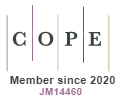Artificial intelligence, post-humanism and education: between simulacrum and assembly
DOI:
https://doi.org/10.5585/44.2023.23906Keywords:
artificial intelligence, posthumanism, distributed cognition, conscience, ChatGPTAbstract
Na argument is put forward against personifying generative artificial intelligence (AI) agents based on natural language models such as ChatGPT and Bard. It is proposed that projecting “humanity” onto this type of artifact is a form of educationally unproductive anthropocentric attachment; Katherine Hayles' model of cognitive assembly (new unconscious) is proposed as na alternative, in which technical (non-conscious) cognitions produce modes of attention-recognition that have moral and political agency, but are not to be confused with human consciousness. The projection of a theory of mind onto the artifact is explained through a post-phenomomenoloical framework and it is warned that neither demonizing artificial intelligence, nor treating these simulacra as de facto intelligence “empowers” the human, but only reenacts progressively more reductionist versions of the idealized humanista human. It is urgent to use in a more transparent way the articulations between consciousness and non-human modes of awareness so that neither students nor AI become less and less “intelligent”.
Downloads
References
BADMINGTON, N. Mapping Posthumanism. Environment and Planning A: Economy and Space, v. 36, n. 8, p. 1344–1351, ago. 2004. DOI: https://doi.org/10.1068/a3712
BATESON, G. The Cybernetics of “Self”: A Theory of Alcoholism. Psychiatry, v. 34, n. 1, p. 1–18, fev. 1971.
BATESON, G. Mind and nature: a necessary unity. 1st ed ed. New York: Dutton, 1979.
BATESON, G. Steps to an ecology of mind. Northvale, N.J: Aronson, 1987.
BENNETT, J. Vibrant Matter: A Political Ecology of Things. Durham: Duke University Press, 2010.
BOSTROM, N. The transhumanist FAQ: a general introductionthe World Transhumanist Association, 2003. Disponível em: <https://www.nickbostrom.com/views/transhumanist.pdf>. Acesso em: 17 nov. 2020.
BRAIDOTTI, R. The posthuman. Cambridge, UK ; Malden, MA, USA: Polity Press, 2013.
BUZATO, M. E. K. Can reading a robot derobotize a reader? Trabalhos em Linguística Aplicada, v. 49, n. 2, p. 359–372, dez. 2010. DOI: http://dx.doi.org/10.1590/S0103-18132010000200004
BUZATO, M. E. K. Entre o padrão e a presença: buscando uma heurística para a biopolítica do pós-humano. Em: BUTTURI JÚNIOR, A.; SCARSO, D.; LEME, J. L. C. (Ed.). Antropoceno, biopolítica e pós-humano. 1. ed. Campinas, SP: Pontes, 2020. p. 328.
BUZATO, M. E. K. (How) Can Critical Posthumanism Help to Decolonize Tertiary Education in the South in the Age of Cognitive Capitalism? Em: MAKONI, S. et al. (Ed.). The languaging of higher education in the global South.. New York: Routledge, 2022. p. 211–227.
DELEUZE, G.; GUATTARI, F. Mil platôs: capitalismo e esquizofrenia. Traducao Célia Pinto Costa. 1. ed. Rio de Janeiro: Editora 34, 1995. v. 1
FERRANDO, F. Posthumanism, Transhumanism, Antihumanism, Metahumanism, and New Materialisms: Differences and Relations. Existenz, v. 8, n. 2, p. 26–32, 2013. Disponível em < https://existenz.us/volumes/Vol.8-2Ferrando.html> Acesso em 31 Dez, 2021.
GONSALES, P. AI literacies: letramentos digitais de inteligência artificial e a educação na perspectiva pós-humanista. a sair. Universidade Estadual de Campinas, Campinas, SP, a sair.
GONSALES, P.; AMIEL, T. Inteligência Artificial, Educação e Infância Educação na contemporaneidade: entre dados e direitos. Panorama Setorial Cetic v. 12, n. 3, p. 1–21, 2020. Disponível em < https://cetic.br/media/docs/publicacoes/6/20201110120042/panorama_setorial_ano-xii_n_3_inteligencia_artificial_educacao_infancia.pdf> Acesso em 31 Dez, 2021.
HARARI, Y. N. Homo Deus: a brief history of tomorrow. London: Harvill Secker, 2016.
HAYLES, N. K. Cognitive Assemblages: Technical Agency and Human Interactions. Critical Inquiry, v. 43, n. 1, p. 32–55, set. 2016. DOI: https://doi.org/10.1086/688293
HAYLES, N. K. Unthought: the power of the cognitive nonconscious. Chicago: The University of Chicago Press, 2017.
HEIDEGGER, M. Ser e tempo. Trad. Marcia Schuback. Petrópolis: Vozes [u.a.], 2007.
HERBRECHTER, S. Critical posthumanism. Em: BRAIDOTTI, R.; HLAVAJOVA, M. (Ed.). Posthuman glossary. Theory. London: Bloomsbury Academic, 2018. p. 94–96.
HUTCHINS, E. Cognition in the wild. Nachdr. Cambridge: MIT Press, 2000.
KOGA, J. Euforia ou Fantasia: Agentes Conversacionais e sua relação com a linguagem. Campinas, SP, 2022. .
KOVÁČ, L. Fundamental Principles of Cognitive Biology. Evolution and Cognition, v. 6, n. 1, p. 51–69, 2000. Disponível em < https://dai.fmph.uniba.sk/courses/CSCTR/materials/CSCTR_03sem_Kovac_2000.pdf> Acesso em 01 Mar., 2019
KURZWEIL, Ray. The singularity is near: when humans transcend biology. New York: Viking, 2005.
LATOUR, B. On technical mediation: Philosophy, Sociology, Genealogy. Common Knowledge, v. 3, n. 2, p. 29–64, 1994. Disponível em < http://www.bruno-latour.fr/sites/default/files/54-TECHNIQUES-GB.pdf> Acesso em 12 Set, 2009
MITCHELL, S. Technogenesis. New York: Roc, 2002.
MOULIER BOUTANG, Y. Cognitive capitalism. Cambridge: Polity Press, 2011.
NAYAR, P. K. Posthumanism. Cambridge: Polity Press, 2014.
ROSENBERGER, R.; VERBEEK, P.-P. (ed.). Postphenomenological investigations: essays on human-technology relations. Lanham: Lexington Books, 2015.
SLOTERDIJK, P. Rules for the human park: a Response to Heidegger’s “Letter on ‘Humanism’”. Em: Not saved: essays after Heidegger. Malden: Polity, 2016. p. 193–216.
WITTKOWER, D. E. What Is It Like to Be a Bot? Em: WITTKOWER, D. E. (Ed.). The Oxford Handbook of Philosophy of Technology. Oxford: OUP, 2022. p. 357–373.
Downloads
Published
How to Cite
Issue
Section
License
Copyright (c) 2023 O autor

This work is licensed under a Creative Commons Attribution-NonCommercial-ShareAlike 4.0 International License.
- Abstract 2593
- PDF (Português (Brasil)) 1778







